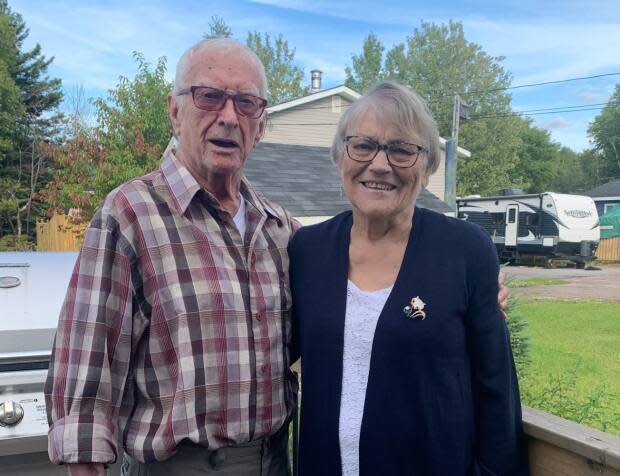Her parents were separated in long-term care. Now this woman is pushing for a law to keep them together

A St. John's woman is calling for new legislation to keep seniors together with their partners in long-term care, after her parents were separated when they moved into a care facility.
Elizabeth Penney says she received a call last week that her parents, who live in Deer Lake, would be moved into a long-term care facility in Corner Brook and would have to be ready in the next few days.
Penney said her parents already had 24-hour home care, which was set to continue until January, so she got in touch with the provincial government.
But according to Penney, moving into the long-term care facility seemed to be the only option available for her parents.
"They were going to try to keep them at home, which would be an ideal situation with the 24-hour care, but if we didn't go ahead with this move, they would lose their home-care services," she said.
"We felt that we were more or less being held over a barrel when it came to our parents and their care, because they were going to take away their hours if they didn't go into this facility."
All we're asking is that [seniors] be treated with respect and dignity. - Elizabeth Penney
When Penney arrived at the long-term care home with her parents, she said she was told that her parents would have to be split up and be assessed, and that they could be apart for months.
"We stipulated on the application that under no circumstances were they to be separated. That was our only request," she said.
"We stressed at that time that that is not acceptable, for we only have minutes and hours due to the health of both my parents and how this would be detrimental to their health."

Penney said she was devastated that there were no guarantees that her parents, married for 61 years, would be able to stay together.
"They're a very loving couple," she said.
"They're holding hands all day long. They tell each other they love each other throughout the day."
Penney said the experience with her parents led her to post a video on social media.
"This is not just about my parents," she said.
"This brought things to light for all seniors in this province … all we're asking is that they be treated with respect and dignity."
Other provinces have introduced or proposed legislation to keep couples together. Nova Scotia has the Life Partners in Long-Term Care Act, while Ontario is working on legislation, dubbed the Till Death Do Us Part Act.
Penney said she wants to see a similar law in Newfoundland and Labrador. She said she is considering a petition to present to the government.
"This is something that's very important, and it's very dear to our family's hearts, and having to go through this, we want to make sure that other people don't have to deal with this kind of situation."
Visitation options available, Health Department says
The Department of Health and Community Services declined an interview, but in a statement to CBC News, the department said it sets out operational standards for long-term care and works with the province's regional health authorities to ensure standards are followed.
The statement said that province's long-term care operating standards allow for "the placement of a spouse who is not meeting the care requirements" in exceptional circumstances only, where "separation is detrimental to a spouse."

People who do not meet the criteria for long-term care are not eligible to be put into a long-term care facility because of the demand for beds
"We recognize it is unfortunate when spouses are separated due to differing care needs. In such circumstances, the regional health authorities are committed to supporting spouses who wish to visit each other," says the statement.
"This may include offering placement to the spouse with lower care needs in a personal-care home close to the long term care home, facilitating transportation and meal sharing at the long term care home and virtual visitation."
The department sats it regularly reviews information from other areas, however, to inform its own policies.
Penney said her mother has now been assessed and moved to the same floor of the long-term care home as her father.
"But this is not over until they're together," she said.

 Yahoo Finance
Yahoo Finance 